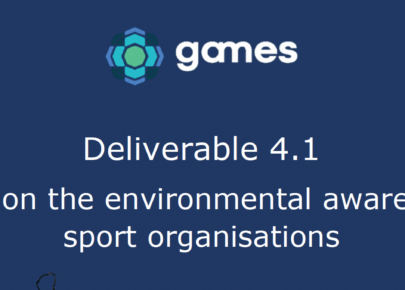International Biathlon Union decarbonisation workshop addresses fan travel
Almost 100 organising committee representatives discussed decarbonisation practices at the IBU’s annual meeting
On June 24th, the International Biathlon Union (IBU) hosted a workshop during the federation’s organising committee (OC) meeting in Prague, Czech Republic – the nation where the 2024 World Championships will be held – on ‘How to effectively implement decarbonisation best practices.’
As part of the annual meeting, Riikka Rakic, IBU’s head of sustainability, organised a sustainability discussion, this year taking place as a large workshop to utilise the 90 representatives of the IBU’s OC’s that attended.
IBU events produce 10x more carbon emissions compared to events held without fans, as seen during the COVID-19 pandemic. In an effort to lower this, biathlon organisers who have been leading in their efforts towards sustainable mobility provided examples for the attending representatives to learn from.
IBU Biathlon World Championships – February, 2023 (Oberhof, Germany)
Over 152,000 spectators attended the championships over 10 days of competition, with close to 30,000 on each of the weekend days. Authorities therefore decided that the town was too small to host spectators arriving by cars.
This presented the OC with a big challenge. “We have data from past seasons that traditionally, two thirds of our spectators have travelled by public via private vehicle to events, very few with hybrid or electric vehicle until now,” says Rakic.
The OC decided to include free public transport to the venue from within a radius of 50 kilometres as part of the ticket cost, including cities in Thuringia like Erfurt where fans could reach the venue via train. Free park and ride buses were available 10km away from the venue for spectators arriving by car. Rakic emphasises the “massive investment” of public authorities to enable this.
Despite buses arriving and leaving the venue in multiple directions, queues of buses slowed the process down, so there are still logistical efficiencies to find at events with similar public transportation schemes.
IBU World Cup Biathlon – December, 2023 (Lenzerheide, Switzerland)
As of 2021, Switzerland has, by far, the most passenger-kilometres per capita of any country at 1,637 kilometres a year. This helped enable the Lenzerheide OC to provide free public transport in the event’s ticket price for spectators from anywhere in Switzerland, thanks to the collaboration of Swiss Federal Railways.
Lenzerheide is a small town on top of a mountain, so there is no way to drive there. Regardless, Rakic expresses that “we have taken a huge step forward” if the package of free public transport from anywhere in Switzerland can be replicated at other sports events in the country.
Rakic describes a barrier to enabling this being relaying the information to spectators. Communicating the availability of free public transport at different phases of the event, such as before purchasing tickets and when fans are at the venue and travelling away from it, is crucial to such a scheme’s success.
IBU World Cup Biathlon – November/December, 2022 (Kontiolahti, Finland)
Some locations are so remote that public transportation isn’t possible. Kontiolahti is one such place on Finalnd’s eastern border, yet Rakic thinks the municipality’s OC provides an example of how to approach the dilemma sustainably.
Winners of the inaugural OC award for sustainability excellence in 2022, organisers have utilised Hydrotreated Vegetable Oil (HVO) as a fuel alternative. HVO emits about 90% less emissions than normal diesel and can be used by most diesel operated motors.
HVO has also been used at Kontiolahti for transporting snow, preparing the tracks and front loaders. Rakic wants to explore using HVO to transport buses of spectators, but reiterates the fuel is a short-term solution until other options are available. HVO isn’t available everywhere, but the IBU will explore providing a common solution for the provision of HVO to all organising committees moving forwards.
IBU Organising Committee Award for Excellence in Sustainability
The IBU established the annual award in 2022 to promote both impactful and replicable sustainability and climate actions by IBU event hosts.
Following Kontiolahti as the inaugural winners, Oberhof won the award in 2023. The World Championship’s OC won €10,000 for the award, which will be put towards effective communication and local community sustainability projects.
Rakic mentions that the recognition provided by the award can also help OC’s sustainability motives. “Kontiolahti want to expand to further areas, so they need to partner with the local municipality to do that. And when they are awarded for their current work already, then it’s easier to have that discussion.” This is a crucial step to sustaining Kontiolahti as a biathlon venue.
“Any ski resort has 80% of their carbon emissions come from travel in and out. 20% are in the venue itself,” Rakic explains. “And that can only be solved in collaboration with public authorities.”






